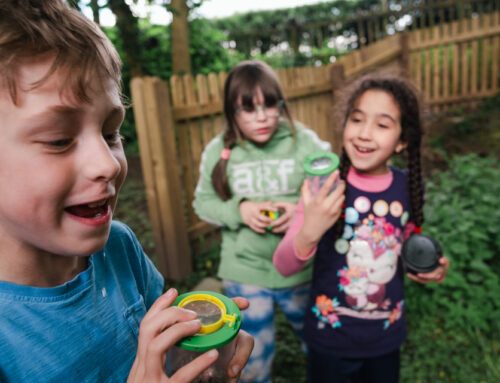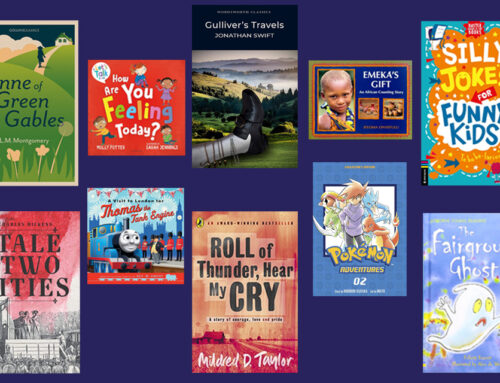With formalisation of the guidance to provide remote learning for students who can’t be in school due to Covid-19, schools will be considering how they cater for learners’ different needs in this environment. Whether you are using an online learning platform to connect with students, are delivering live lessons or your contact is entirely asynchronous, here are 5 easy ways to plan in challenge for those who need it.
- Odd Ones Out
Give three or four related options that could have various answers and ask which is the odd one out. Ask learners to justify their answer. If there is collaboration, they can compare their answers. You can ask how they got their answers and what they needed to know. Learners will be analysing information, evaluating it and then deciding on their own criteria to come to a judgement, all very high-level thinking tasks.
This activity can be topic-related or off-topic just for brain-stretch. Students will have to think creatively and from different perspectives to find different angles.
Example 1: Autumn, Monday, January, Minute – which is the odd one out and why?
Example 2: The Tempest, Hamlet, The Winter’s Tale, Henry IV Part I – which is the odd one out and why?
Click here for a PowerPoint with more examples.
- Summarise
Asking learners to summarise the lesson or a section of it, taps into several higher order skills as well as using elaborate retrieval to make it more likely that the learning will go into long-term memory. Students reflect on the topic and summarise important points, material or skills learned. Where there are collaboration opportunities, ask students to share with another class member to discuss what the important takeaways are.
Restrictions can be imposed to make it even more challenging, such as summarise in a tweet (280 characters); use only one paragraph; or create an acrostic.
Ask students to ask themselves:
- What did I learn today about…?
- What did I already know that ties into what I learned today?
- How can what I learned today help me in the future?
- Thunks
Coined by Ian Gilbert, Thunks are quick philosophical questions that encourage deep thought and personal response. They can help students to look at topics from a different perspective. Again, they can be topic-based or off-topic.
Example 1: If you didn’t mean to, is it ok?
Example 2: Can you choose to like a work of art?
For lots more examples see Potential Plus UK’s article on Thunks.
- Make a connection
Making connections outside the topic being learned about gives rise to higher order thinking and the opportunity for developing personal responses, which in turn aids memorisation. Making connections of this kind, leads to more divergent thinking, deeper learning and the development of conceptual ideas.
There are four main types of connections that can be made. Here they are along with an example question based on poetry that can be asked to prompt the connections.
- Topic connection (within the subject of English but connection to a different topic) – Can you think of when you have learned about the techniques used in this poem before?
- Subject connection (within school but connecting to a different subject) – Does this kind of analysis remind you of when you have analysed something in another school subject/History/Philosophy and Ethics/Music?
- Outside world connection (connecting to something outside of school) – Does the theme in this poem have relevance today?
- Personal experience connection (connecting to the student’s own experiences and opinions) – Does this poem mean something to you? If not, why not?
- Metaphors
Ask students to find a random household item or direct them to a particular one (such as a spoon, key or waste bin) and ask them to say why the item is like an aspect of their learning. There doesn’t need to be any immediate connection to the topic – the idea is to find the connections. You’ll be surprised by the insightful responses students come up with! This activity helps learners to think conceptually and bring together the main takeaways from their learning. You can expand this into a longer, more in-depth task to communicate their responses, to you or other class members, in either voice, video, PowerPoint, Padlet, chat or writing.
Example 1: Why is this insulated coffee cup like cloud formation?
Example 2: Why is a computer mouse like life in Victorian Britain?
Example 3: Why is a mobile phone like a plant cell?
It is certainly a challenge to adapt great classroom practice, which has kept all learners challenged, for new remote environments. With these easy ways to deepen learning, high potential learners will remain engaged, develop critical skills and return ready to embrace challenges! Look out for 5 more ways to challenge learners in remote environments next month.
About the author: Rebecca Howell is Potential Plus UK’s Senior Education Consultant. She leads various aspects of the organisation, including oversight of the assessment and advice services. She is passionate about leadership and developing new services to support members. With a background in educational leadership, she has 3 children with high learning potential/dual or multiple exceptionality.






